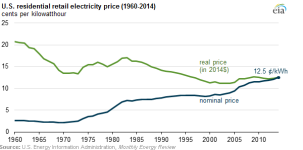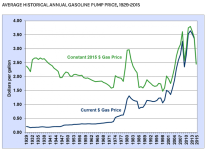- Joined
- Jul 30, 2019
- Messages
- 2,290
- Reaction score
- 1,328
- Gender
- Undisclosed
- Political Leaning
- Private
There is nothing cost effective about owning any car; they are all (except collector vehicles) money pits. My guess - sorry, no links - is that in 10 years batteries will be exponentially cheaper, if not of completely different composition entirely. With the financial load of conforming to emissions and mileage standards removed from the R&D departments of auto manufacturers, the same money would target battery and charging improvements.Maintenance difference is substantial but in ten years the EV would need new batteries which would likely be break even with accumulated maintenance cost of conventional car over that time frame.
Given that the drive train of the BEV in general is vastly simpler than the simplest ICE, many more 'chassis miles' will be possible when the original drive train degrades to replacement/upqrade status. A BEV will have more intrinsic value when in the 200K to 300K miles range, than an ICE which needs a vehicle-specific drive train replacement; recycled BEV's might just be the low-income buyer's way into an eV in the not-too-distant future.
Same theory applies if the Hydrogen/fuel-cell electric motor vehicle market takes off. Electric motors are simple, reliable, and cheap.





